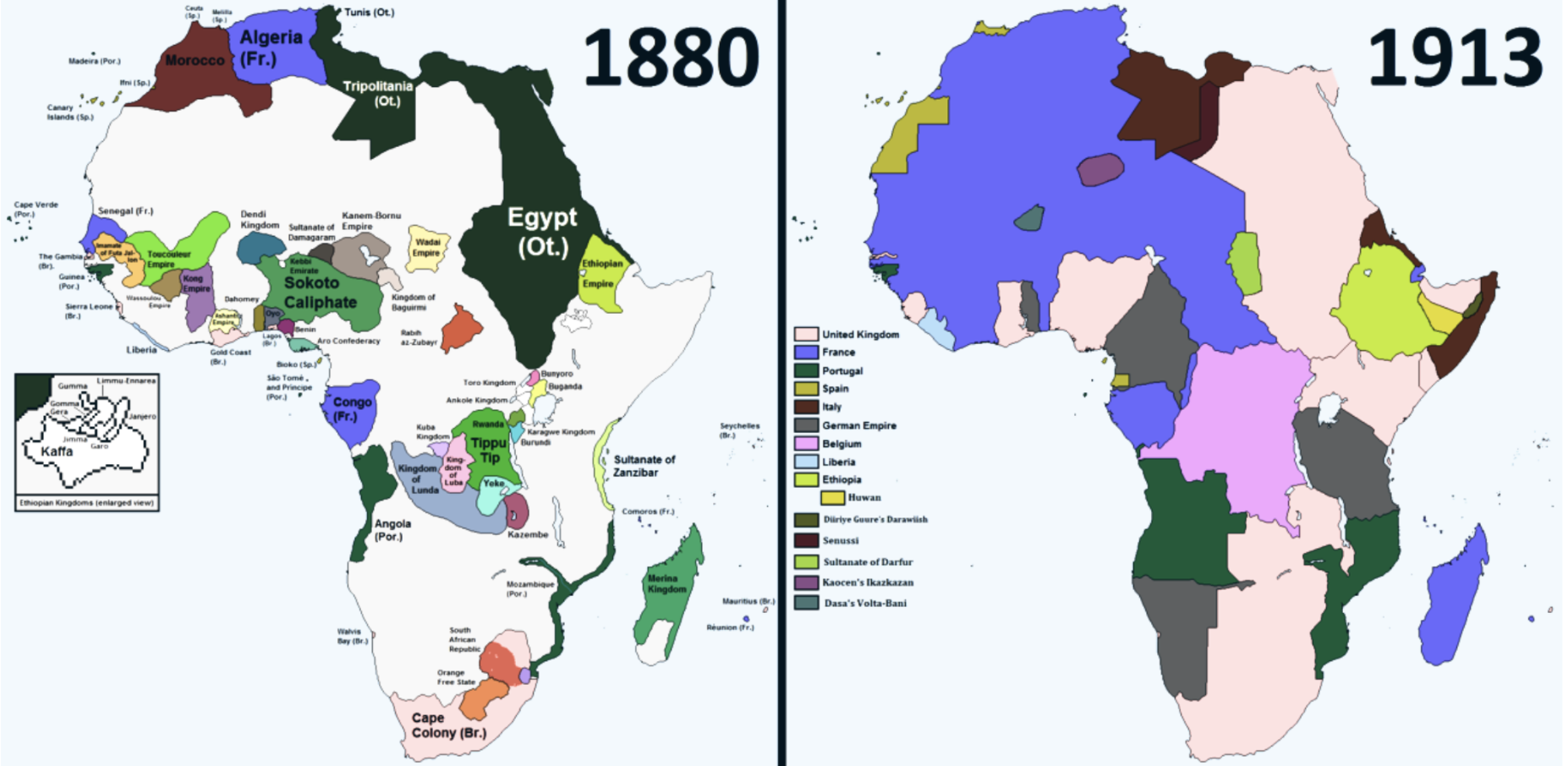By Lisa Bensoussan,
Since the 19th century, the desire of Western countries to colonise has grown, with Europe turning its attention to Africa, a continent that was relatively unexploited but rich in resources such as diamond mines. In 1884, Europe was aware of the growing tension between states as they clashed over the consolidation of their colonial empires. Under pressure from German Chancellor Otto von Bismarck, a conference was convened for the sharing and division of Africa – the first international conference known as the Berlin conference. However, no Africans were invited or represented at the conference, and the future of the continent was placed in the hands of European diplomats who had little knowledge of the location of wealth, tribes, customs, etc. Indeed, the borders were drawn with a ruler and a chalk line, leading to the famous German expression that “Africa was sliced up like a cake” during the conference.
At the end of the 19th century, the Portuguese, who were the first civilization to have discovered the mouth of the Congo River, saw the English making agreements and decided to launch negotiations for the division of the territory. Fourteen states were present at the conference, including France, Belgium, Germany, the United States, among others. The agreements reached at the conference were recorded in the General Act of the Berlin Conference on February 26, 1885, and included several principles which were supposed to regulate colonisation, such as the prohibition of slavery in certain regions.

As you probably already know, conquests were often carried out violently despite these agreements, with European countries trying to outdo each other, a phenomenon known as “the race for the steeple.” Africans were often subjected to forced labour without pay, building railways and cultivating land for Europeans, and were also burdened with taxes. Indigenous peoples attempted to resist the massive arrival of Europeans but found themselves in a position of military inferiority. The victims were numerous, and German colonisation was particularly deadly. The first medical experiments on the notion of “race” were conducted on Hereros and Namas prisoners in order to support racist ideologies. The first deportations from present-day Namibia to Togo and Cameroon also took place in Africa. The first genocide of the 20th century occurred in Namibia between 1904 and 1906, when more than 30,000 Namibians were forced into the Kalahari Desert, where they died of thirst and hunger. Heinrich Goering, the father of Hermann Goering, would become the first governor of the colony. The Namibian people were almost decimated, and today they continue.
The impact of the Berlin conference on Africa and Europe can still be felt today. The arbitrary drawing of borders during the conference disregarded the ethnic and cultural diversity of Africa, resulting in conflicts and tensions that persist to this day. The forced labour, exploitation, and atrocities committed during the era of colonisation have had lasting effects on African societies and economies. On the other hand, the European powers emerged from the conference with increased control over African territories, leading to the establishment of colonial empires and the exploitation of African resources for their own benefit. The consequences of the Berlin conference also contributed to the rivalry and tensions among European powers that eventually led to the outbreak of the First World War. In the post-World War II era, African countries began to gain independence from their colonial rulers, but the legacy of the Berlin conference still shapes political, social, and economic dynamics in Africa. The scars of colonisation are still felt, and efforts to address the consequences of the conference continue to be relevant in contemporary discussions on African history, politics, and development.

In conclusion, the Berlin conference was a pivotal event that marked the formal division of Africa by European powers, leading to colonisation and its far-reaching consequences. While it achieved its objectives from the perspective of the European powers, the impact on Africa and Europe has been profound and continues to be felt in the present day. It serves as a reminder of the complex history and enduring effects of imperialism and colonisation on African societies and their relationships with the rest of the world.
References
- Berlin 1884: Remembering the conference that divided Africa. aljazeera.com. Available here
-
Germany officially recognises colonial-era Namibia genocide. bbc.com. Available here




